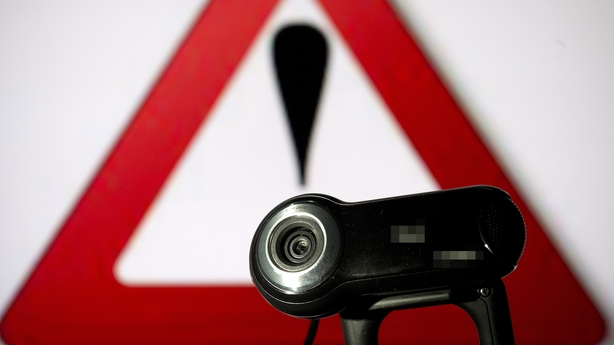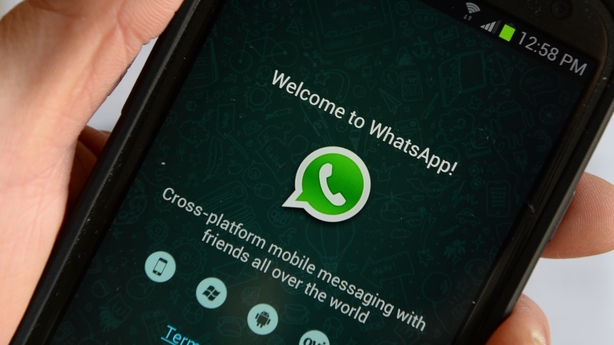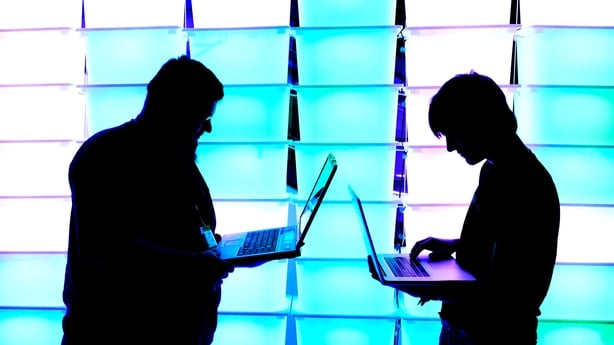Am I being hacked?
Am I being watched?
What should I do?
Some of the many natural questions that came to mind this week as a result of the sensationalist headlines around the latest Wikileaks disclosures, writes RTÉ's Science & Technology Correspondent Will Goodbody.
In summary, the whistleblowing website published over 8,000 contemporary files and documents that purportedly came from deep inside the US's Central Intelligence Agency's (CIA) cyber-warfare unit.
They catalogued the malware, viruses, Trojans, zero-days and other digital nasties that were or are allegedly being used by the spooks to spy on, disrupt, attack and even possibly injure (by in one case meddling with car control systems) the enemy — whoever that is.
The anonymously leaked unverified data also details how devices have been breached in order to enable messages to be accessed before or after they are encrypted for transit and even how their inbuilt cameras and microphones can possibly be used to eavesdrop on their users.
On the face of it, it all sounds pretty shocking.
But have we any reason to be spooked or surprised by the activities of these spooks?
On balance, the answer is no.
For starters, the job of intelligence agencies is to gather information to uphold security and protect national interests.
Irish intelligence officers did this in the past and continue to do this today in order to keep citizens here safe from perceived threats.
Why should the US intelligence agencies be any different?
In fact, if there were to be any threat to Ireland picked up by US agents in the course of their work, the likelihood is that it would be passed on to authorities here.
But in order to gather such information, intelligence operatives and analysts need tools.
In the past, these were primarily human assets - the classic mole, or spy, or secret agent.
Today, however, in a world driven by IT, humans alone aren't enough.
Technology is needed to combat technology.
It should come as no surprise then that the CIA is using and developing tech tools.
What these revelations do throw up, however, is just how insecure many of the pieces of technology we rely on every day are.
If certain Samsung TVs can be turned into devices to remotely record the conversations of those in the room, just by uploading some code to them from a USB stick as the CIA documents allege, then what else is vulnerable?
We have previously heard stories about baby monitors, routers, webcams and more that have been hacked.

And yet we continue to pack our homes and workplaces with more and more internet enabled devices - from learning thermostats and always listening virtual assistants, to interactive games consoles even web connected dolls - without questioning their security.
Devices that quietly, efficiently and with our consent (yes, you ticked that Agree box on the terms and conditions) gather data about us as we go about our lives, in order to help sell more targeted advertising or improve the product.
And don't forget that many of us even knowingly and actively catalogue our own activities, thoughts, meals, families, loves, hates, disappointments and more on social media every day.
Yet we "freak out" when we think other people are watching us.
So as we move into a new phase where all sorts of every day devices will be connected to the internet and will become "smart", we need to ask hard questions of manufacturers about security and put stiff penalties in place for those who don't meet the standards we demand.
If the CIA has found ways to hack operating systems, devices and more, you can be certain that numerous other non-state and state actors have too.
And in many cases these are people you really don't want to have watching your every move, for lots of reasons.
There is a valid argument that the CIA should be helping to close security loopholes it discovers (or pays others to discover) by passing on details of them to the companies that make the software and devices under the so-called Vulnerabilites Equities Process programme.
But a stronger argument is that instead of voicing outrage at the CIA's unwillingness to do so, technology companies should be doing a better job of ensuring their products and services are secure in the first place.
Its worked for WhatsApp and Signal for example - their messaging apps are so secure the spooks at the CIA had to find ways to hack the devices the messages were being delivered to instead.

Fundamentally though, the most important thing to remember is that if you aren't doing anything illegal, you don't have to worry about the CIA watching you.
Sure, we are all supposed to enjoy a fundamental right to privacy.
And we should never take it for granted that authorities know where to stop.
The bulk collection and surveillance of data by agencies like the NSA for ongoing trawling exercises, as revealed by former contractor turned whistleblower Edward Snowden, is arguably one example of where they have over-stepped the mark.
But overall, unless we want to go back to a world without labour saving devices and real-time multimedia communications, we need to accept that there is always someone somewhere trying to watch us.
Hackers will hack; spooks will spy.

And only technology companies, as well as our willingness to demand better security measures and become a more security conscious, can thwart it.
Comments welcome via Twitter to @willgoodbody







